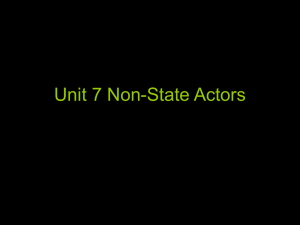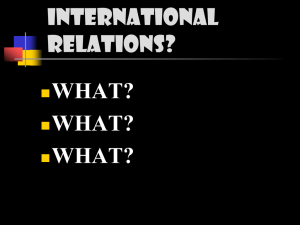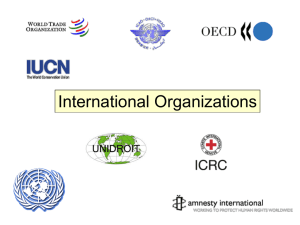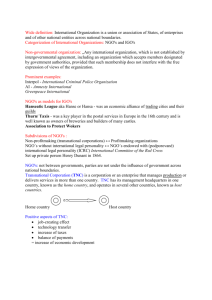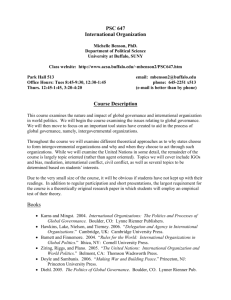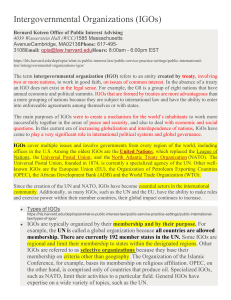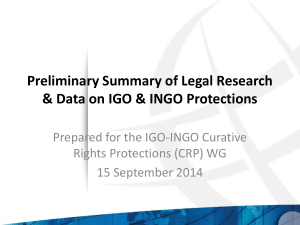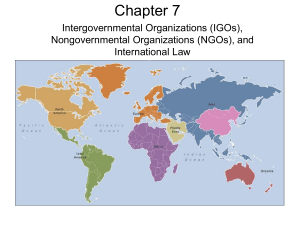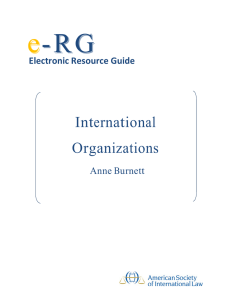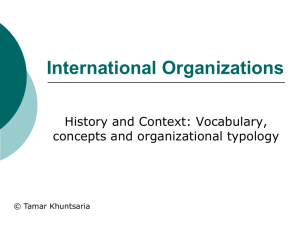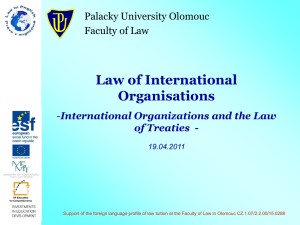IGOs - AALL
advertisement
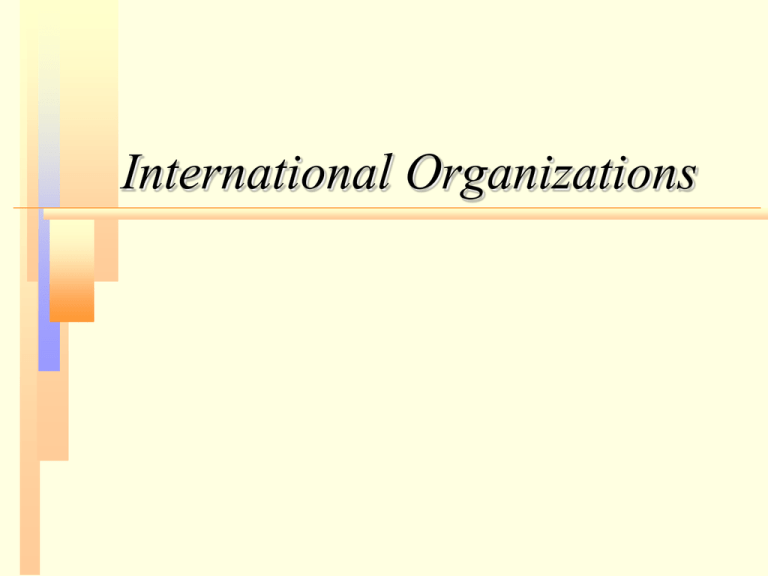
International Organizations International Organizations Two types: • Intergovernmental (IGO) – Able to enact “supranational law”, which is legal control, derived from either a treaty or exerted by an IGO, which nations agree be bound by in addition to their own domestic laws • Non-governmental (NGO) – No international legal authority, can only provide persuasive recommendations Intergovernmental Orgs (IGOs) An IGO 1. has international legal status (privileges, immunities, rights, and duties) that is based upon its founding charter, constitution or statutes. As such, an IGO can enter into agreements with other IGOs or independent states 2. has a legislative body that creates legal acts (decisions, resolutions, directives, etc.) that may bind the IGO and its member states under international law. Most of these legislative acts do not supersede national law IGOs cont’d 3. may have a dispute resolution mechanism or body that is empowered to resolve disputes among its member states 4. may have an executive body that facilitates the operations of the IGO IGOs IGO publications are often found in both official print reporters and through the organization’s website • IGOs disseminate materials that qualify as primary sources, such as research findings, statistics/data sets, project reports, news items, and policy statements • good sources of comparative information between individual countries The UN—an IGO? Legal Status • UN Charter Legislative body • General Assembly Dispute Resolution Mechanism • ICJ/Security Council Executive body • Secretariat (Secretary General) IMF, World Bank, IBRD, IFC, etc. Economic IGOs established at the Bretton Woods conference in 1945 Do not generally produce “hard law” but can be very useful sites if you are working in either development, human rights, or international finance IMF’s Selected Decisions and Documents • http://www.imf.org/external/pubs/ft/sd/index .asp Exercise #1 Locate the IMF’s Articles of Agreement in a US treaty source Does the IMF meet the 4 requirements of an intergovernmental organization? Nongovernmental Orgs (NGOs) NGOs: • Organizations that operate INDEPENDENT of states • not endowed with any international legal powers • are persuasive groups, and may have “consultative” status with larger IGOs. • often refered to internationally as “civil society organizations” NGO publications often constitute “grey literature”—not usually available through traditional sources so internet may be best way to access them • These documents often DO NOT COME UP IN GOOGLE SEARCHES! Careful research requires you to actually browse the websites themselves Locating NGOs To locate relevant NGOs in a particular area, try the advanced search feature of the UN’s NGO branch database of civil society partnerships • http://esango.un.org/civilsociety Benefit of this database over Google is that all listed organizations are registered with the UN, therefore adds legitimacy to their organization—however, be aware this database only contains info from groups “approved” by the UN Locating NGO “grey literature” Locate relevant NGOs for your topic and identify their website On their website, look for a link to something like the following: • • • • Publications Library Documents Legal Information If available, use search tools to limit to your country or topic; avoid full text searching wherever possible!!! On the Amnesty site, select “Library” and then use the Advanced Search feature to limit by country, topic, etc On Human Rights Watch, select “Publications” and then utilize drop down menus for Issue and Country
